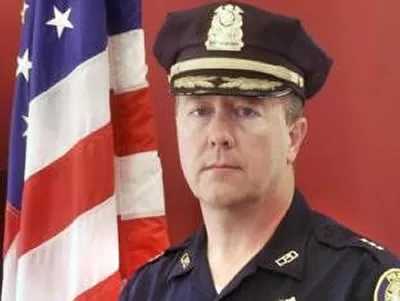Thanks for your time today. Tell us how you initially got into policing and your law enforcement career path:
My father was a police officer in Washington D.C. during the Kennedy era. I took up an interest in law enforcement largely because of him. We were from New England and after a short time moved back home to Lowell, Massachusetts where my father once again became a police officer. I went to school in Lowell and joined the Coast Guard reserves out of high school and attended college majoring in criminal justice. I started as a Reserve Officer in Lowell and then moved to Patrolman. I spent some time as a Detective in the vice narcotics unit as well. I became a Sergeant in the vice/narcotics unit when I was 29 and also spent time as a patrol Sergeant. After being promoted to Lieutenant I was moved into an administrative function focused on technology integration within the department. In that role I introduced 911 service to Lowell and brought laptops into cruisers – which was pretty advanced in the early 90’s. I was promoted to Captain a few years later and oversaw the department’s investigative units. It was during this period that I was fortunate enough to attend the FBI National Academy. I eventually became Deputy Chief and assigned as the Commanding Officer in charge of operations before my retirement in 2016.
What was your experience and interaction with extra duty during your time in Lowell?
I worked a number of extra duty details during the earlier part of my career and also worked on teams which planned large events and the extra duty details which flowed from them. As I advanced through the ranks I also handled the complaints generated from the perception that the system was not treating officers equally. The main concern that I recall during my many years with the LPD was the issue of fairness. Extra duty or details as we called them were a source of additional income for officers, and therefore was watched very closely by all involved.
In the early days, everything was done by paper and pencil – there was not fair and open access to available details. The fairness issues were difficult to address since the persons running the systems were from within the agency and even while doing their best to be fair, there was constant complaining and accusations of bias. Second to who got the jobs, what jobs they got was a big concern. There were continuously complaints that the “plumb” details were directed to select individuals. No matter how much effort was put into creating a fair system, there was a constant belief that the system was being “gamed”. Even after the system was computerized the issues or the perception of unfairness continued. Unfairness in the extra duty program was a continuous issue the administration and union had to deal with over the years and from speaking with officers from around the country it is a problem industry wide.
Another issue we dealt with was the timeliness of pay. Officers didn’t get paid until the vendor paid. Some officers got paid quickly; others waited weeks or months. Eventually the union negotiated a system with the city in which a fund was created to pay the officers their extra duty pay. This improved the situation, but the pay still lagged behind active duty pay and the fund was quickly exhausted. The city had issues with collections and defaults. At times the fund couldn’t cover the pay and the city had to fund the deficit. As you can image, this caused significant tension.
We had people management issues as well. For example, the officers who ran the extra duty program were not sufficiently trained in managing accounts, financial matters or, more generally, how to manage this kind of business service program. Moreover, the individuals taking incoming requests from vendors were not taking those requests 24/7 – so at 2am the desk officer would be handling an emergency need for a detail officer which might be something the desk officer had little experience with and given how busy the city was had little spare time to handle the task. Even with computerization the desk officers hiring detail officers outside of normal business hours had to use paper lists and then enter details into the system later. This just opened the department to criticism and complaints as it furthered the perception of unfairness.
The department expended a great deal of administrative resources administering this system. They also paid a considerable sum to purchase and maintain the software that kept track of it all. Even office space in the building which was at a premium was tied up housing the “Detail Office”. As with other departments, the personnel, space and funds tied up managing an extra duty system could be put to better use furthering the agency’s primary missions.
You recently retired from the Lowell Police Department – what advice would you have for officers getting close to retirement?
I guess my first advice in this area would be – don’t be afraid to retire. When you feel the time is right – retire. Many officers eligible for retirement have a fear of the unknown and are very hesitant to take that retirement step. You should realize that there are many opportunities out there and the skills you developed in law enforcement: organizational skills, communication skills, and often specialized skills can be put to use in the private sector, not only in police related fields but others. When you do retire, take a deep breath and think about what you want to do. Find something to keep your mind active and you are interested in, but don’t avoid retirement simply because you are afraid of what lies ahead.
Thanks for speaking with us today!
My pleasure.




